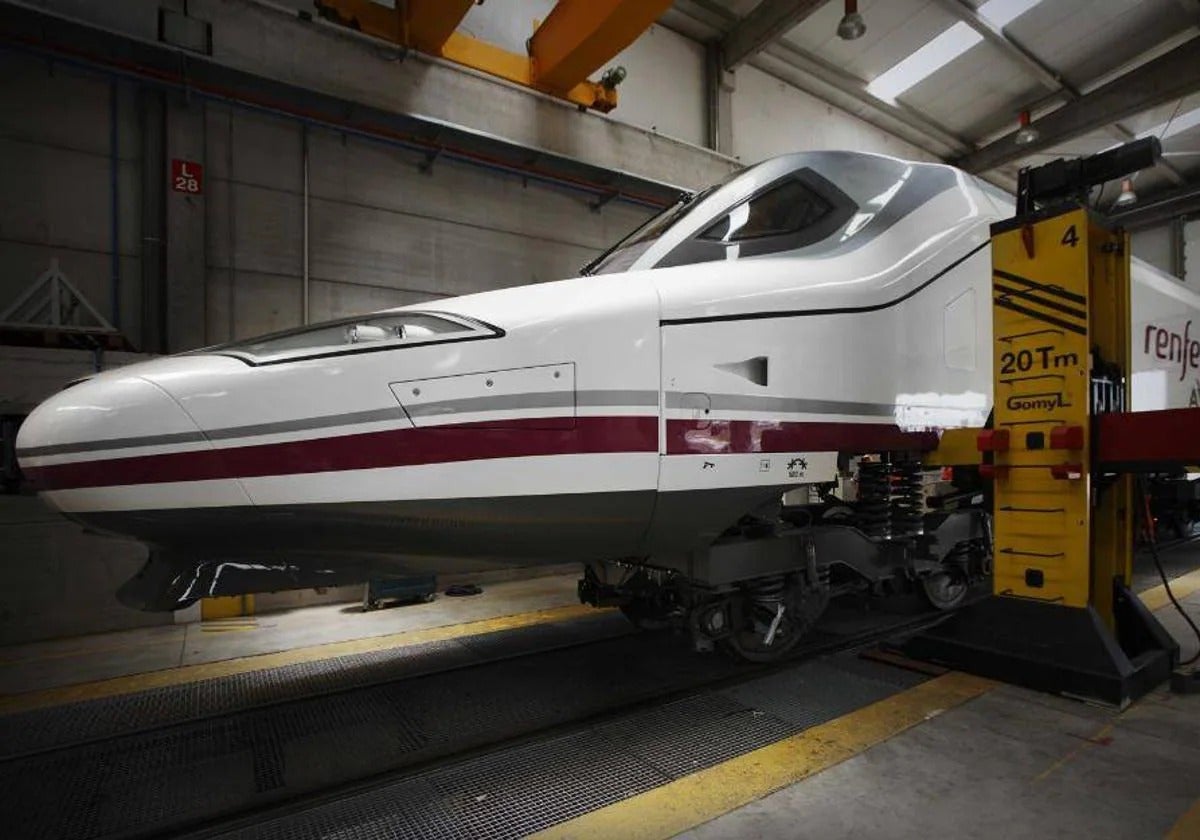Government derails Hungarian consortium's takeover of Spain's high-speed train manufacturer on grounds of 'national security'
Magyar Vagon's 617-million-euro bid has been rejected but the foreign business group has announced it will take the case to court
Lucas Irigoyen
Madrid
Friday, 30 August 2024, 19:15
Spain's central government on Tuesday formally rejected Magyar Vagon's takeover bid for Talgo. The Hungarian consortium made an offer in March of 617 million - five euros per share - to buy the only Spanish manufacturer of high-speed trains, which has its main factory in Rivabellosa (Alava), where 700 people work.
The decision, reported by El Correo newspaper on its website, was made by the meeting of top ministers. The government relied on what is known as the anti-takeover shield to derail the purchase offer. This mechanism, put in place during the pandemic and in force until the end of this year, requires the authorisation of the government for any investment by a foreign company - even if it is from the EU - in excess of 500 million.
The government justified the rejection on the grounds of "national security" and the "strategic" nature of Talgo and its technology, which allows trains to run on different track gauges. The decision took into account the mandatory report of the foreign investment board (Jinvex). This body of the ministry of economy held an emergency meeting on Monday and had, among others, a "classified" document from Spain's national intelligence centre (CNI) which pointed out that "this operation would entail insurmountable risks for national security and public order".
Since the takeover bid was announced, the government has been very reticent about it, which had the approval of the company's main shareholders. The minister of transport, Óscar Puente, even stated that he would do "everything possible" to prevent it. Magyar Vagon's strong backing from the Hungarian government, led by Viktor Orbán - the EU leader closest to Russian President Vladimir Putin - is the main source of these misgivings. Almost half of the investment to finance the bid comes from Hungarian public funds.
Months of negotiations
The reasons, therefore, are not industrial, but lie in the "classified" content. This reservation was the keynote of Jinvex's decision at its online meeting on Monday. The economic affairs department thus closed the file initiated by Magyar Vagon when it asked the government for authorisation. During the last months, several documents were exchanged, a visit was made with Renfe technicians to one of the Hungarian factories and the deadlines for the resolution were extended until November. These negotiations were finally concluded in just 24 hours, between Monday's investment board meeting and yesterday's council of ministers meeting.
The government had been seeking to build an alternative to Magyar Vagon's takeover bid. The Czech railway group Skoda was proposed as a way of doing so. The company approached Talgo to explore a merger, but the Spanish manufacturer rejected this option at the end of July.
For their part, the Hungarians had tried to soften the position of Pedro Sánchez's government by assuring in their industrial plan that the company would continue to be domiciled in the country and listed on the Spanish stock exchange. In addition, they showed their willingness to allow the central government itself or the companies that it deems appropriate to take a shareholding in the company. Now the Magyar conglomerate led by Andras Tombor has announced that it will go to court to defend its proposal.
The news was received by the markets with a fall of 8.72 per cent in the value of Talgo shares. It started yesterday at 4.30 euros and closed at 3.92 euros, a far cry from the five euros offered by Magyar Vagon in its takeover bid. Moreover, during the day, the shares were suspended from trading for two hours.
Difficult situation
The Basque railway manufacturer is now in a difficult industrial situation. The takeover bid was a way to reinforce its manufacturing capacity, which is suffocated by an order book of more than 4 billion euros, and after accumulating several delays in recent deliveries. The British fund Trilantic, Talgo's main shareholder (with 40 per cent of its capital) had long wanted to sell its shares. With the paralysis of the takeover bid, these investors could be the second worst affected. With an offer of five euros per share launched by the Hungarians, they had secured revenues of around 250 million euros, now suspended.
Magyar Vagon processed this application on 22 March and, according to El Correo, this Monday the government already had the unfavourable report. According to the same sources, the reasons that led the Jinvex to issue a negative report have to do with national security. The resolution was discussed at the first meeting of the council of ministers of the cabinet of Pedro Sánchez. Sources from the ministry of economy have confirmed that in this meeting "it has been agreed not to authorise the foreign direct investment in Talgo by Ganz MaVag Europe Private Limited, for reasons of protection of strategic interests and national security of Spain".
As a result of this information, the national securities market commission (CNMV) suspended Talgo's share price at 12.34 on Tuesday "as a precautionary measure and with immediate effect". The regulator will keep the shares off the trading floor until the company releases relevant information on the situation caused by the government's rejection. At the time of the suspension, the train manufacturer's shares were valued at 4.27 euros per share.
Talgo's situation
Talgo's president, Carlos de Palacio, pointed out at the last shareholders' meeting that the company's priority was the need to reinforce its manufacturing capacity in order to be able to meet orders and continue to bid for tenders and contracts at a time of expansion in the sector. The blocking of the takeover bid leaves these growth possibilities in a delicate situation.
